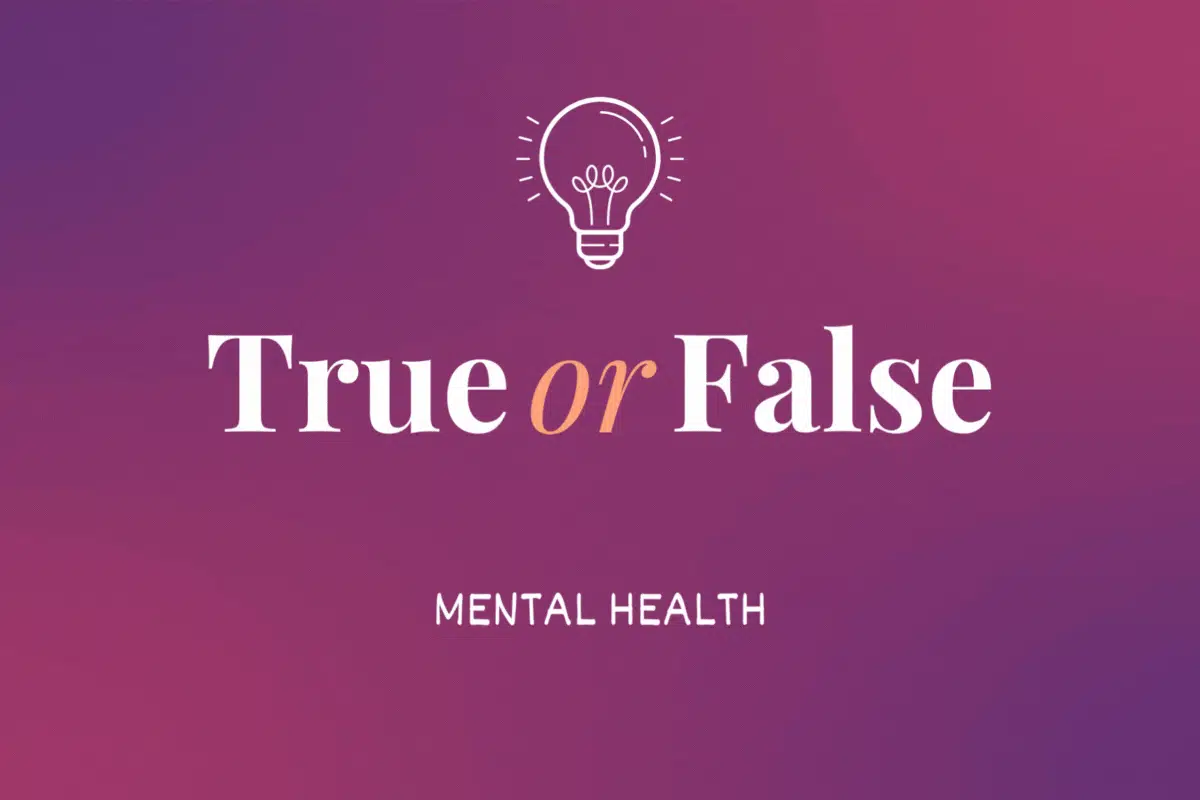
True or False? Mental Health
How much do you know about women’s mental health? Take our quiz to find out.
Dec 19, 2023
Your Wellness
How much do you know about women’s mental health? Take our quiz to find out.
Your physical health is important, but what’s going on inside your head is important too.
Mental health — your psychological, emotional and social well-being — affects pretty much everything you do. But taking care of your mental health isn’t always easy.
Many people are living with mental health conditions such as depression or bipolar disorder and may need treatment to help with symptoms. And research shows that women and people assigned female at birth are more likely to have specific types of mental health conditions compared to men.
So how much do you know about mental health and common mental health conditions? Take our quiz to find out.
Correct
Incorrect
Correct
Incorrect
Correct
Incorrect
Correct
Incorrect
Correct
Incorrect
Correct
Incorrect
Correct
Incorrect
Correct
Incorrect